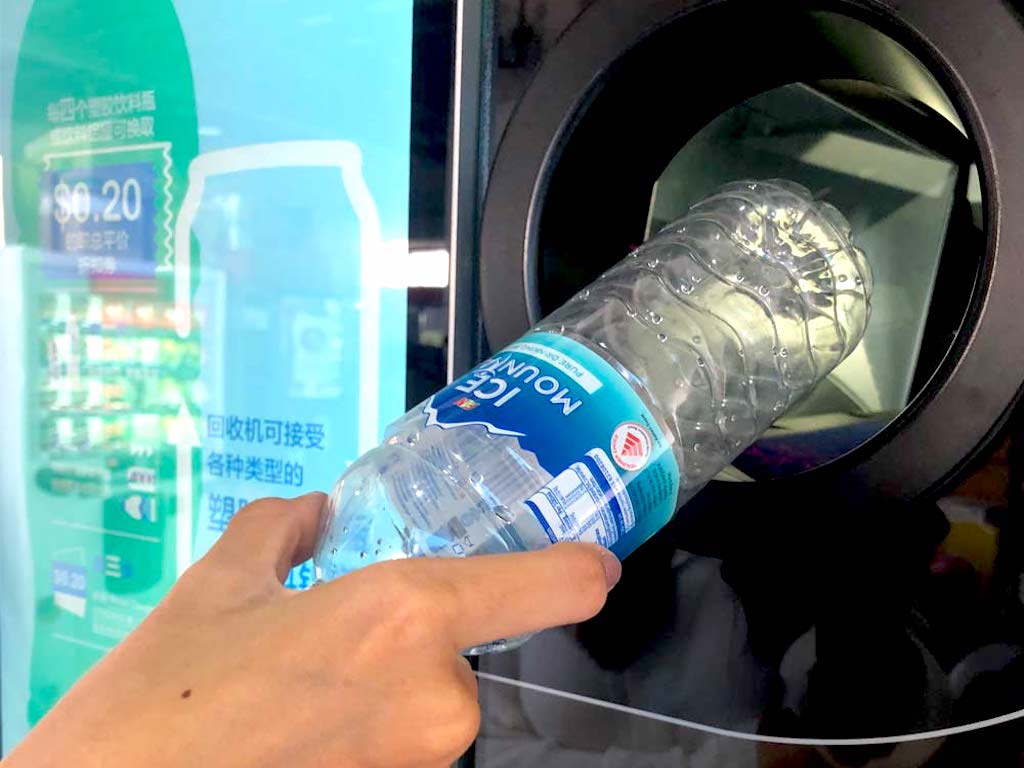3 Mins Read
Singapore has just added 34 new reverse vending machines to its existing network of just 16. The machines accept plastic and aluminium waste, and users receive discount vouchers as a reward for recycling them. As the city-state’s Semakau Landfill nears full capacity, the government hopes to be able to encourage recycling as a way to battle its enormous waste generation.
The 34 new reverse vending machines – upping the total of such machines to 50 islandwide – have been placed in major malls, residential buildings and landmarks, including IMM and Bedok Mall, the Toa Payoh complex and the Jalan Besar Sports Centre.
Residents who dispose of their plastic bottles and containers or aluminium cans will in turn receive rewards, such as vouchers that can be used at malls, credit for ActiveSG sports facilities, free rides with the bike-sharing platform Anywheel, and tokens to be used for Sentosa Fun Pass.
As reported by the Straits Times, around 10 containers deposited will refund SGD 50 cents (US$0.34) in ActiveSG credit. The existing 16 machines that were already in place across the city-state since last October had been refunding recyclers with SGD 20 cents (US$0.14) in discounts at supermarket chains such as FairPrice. There is an option for users to choose not to receive any reward at all as well.
Packaging and electronics manufacturers across the Lion’s City are then responsible for collecting and treating the recyclable items deposited into the machines, with the overall aim of lengthening the lifespan of materials before they end up in the landfill. It is a part of the government’s proposal to reduce 30% of waste per capita by 2030 in order to delay the Semakau Landfill – Singapore’s only landfill – from reaching full capacity.
According to the National Environment Agency (NEA), over 2.4 million plastic bottles and aluminium cans have been collected since the reverse vending machine scheme began. While significant, it marks only a fraction of the whopping 467 million PET bottles consumed by Singaporean residents annually.
When taking into account all types of plastic waste, such as food packaging, low-value condiment sachets, and the plastic contained in textiles such as polyester, Singapore produces 930,000 tonnes of plastic each year, of which only 4% end up being recycled. At this rate, the Semakau landfill is projected to overflow by 2035 – an entire decade earlier than originally planned.
The NEA says that it hopes the initiative will help encourage recycling by making it more convenient for the public to participate. It comes after the government had been criticised for its coronavirus economic recovery taskforce, which failed to include sustainable businesses, climate-forward voices and lacked female representation.
Similar reverse vending machine initiatives have been introduced in Hong Kong. Last October, Swire Pacific Group, the operator of Swire Coca-Cola, began rolling out plastic bottle collection machines that reward users with HK$20 cents (US$0.026) for every plastic bottle.
But recent news of Hong Kong’s increasingly severe waste crisis, with last year’s waste disposal figures reaching the highest level since records began in 1991, suggests that much more needs to be done to tackle the city’s failed recycling system. The scrapped waste-charging bill has further dampened hope for a cleaner Hong Kong Kong.
Aside from the reverse vending machines, some Singaporean entrepreneurs are launching their own measures to tackle the country’s waste crisis. Most recently, food delivery giant FoodPanda announced a collaboration with startup barePack to offer reusable food containers to their customers in the city-state in a bid to cut down on food packaging waste.
Another Singapore-based startup, Reebelo, is refurbishing used electronics such as smartphones, laptops and tablets before listing it on its platform for a discounted price in order to fight the growing e-waste problem.
Lead image courtesy of RecycleNSave.




